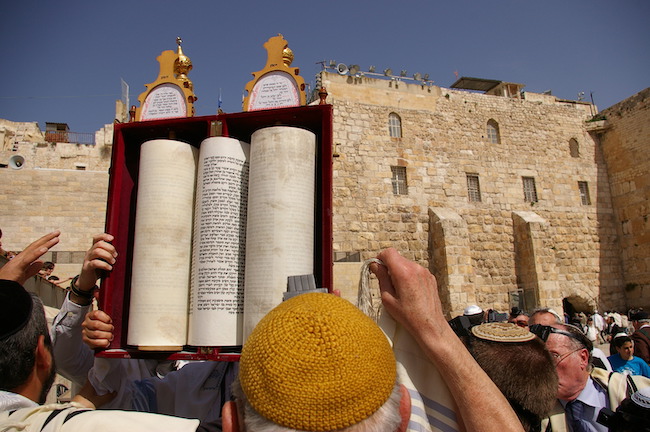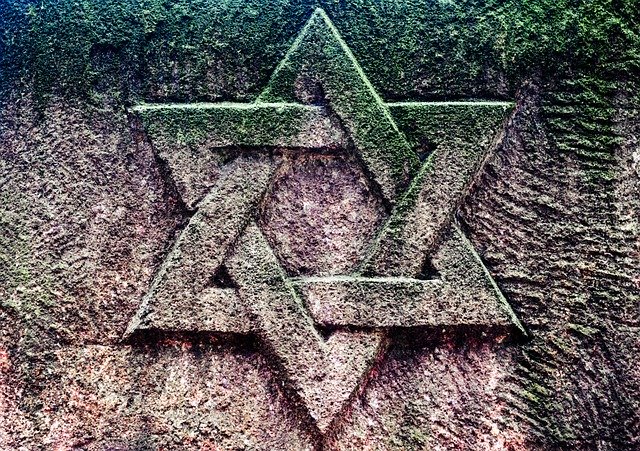Dedicated l’iluy nishmas Matisyahu ben Henoch
In honor of the engagement of Shlomo Krakowitz and Devorah Menken
![]()

Ups and Downs
We learn this week that after all of the instructions, and all of the work done to build the Tabernacle and its holy vessels, the Tabernacle was finally erected and put into service on the first day of Nissan in the year following the Exodus from Egypt.
The Medrash teaches us that for the previous seven days, Moshe put the Tabernacle up, and then took it down. The Divine Presence did not rest upon it, and no services or offerings were done in it. Moshe simply assembled and dissassembled the Tabernacle each of those seven days. This begs for an explanation: what was the purpose of Moshe doing this, simply erecting and taking down the Tabernacle? Everything was built to Hashem’s precise measurements, and the work was led by Betzalel ben Uri ben Hur. Everything fit, there was no further testing necessary. And if there had been some issue nonetheless, they could surely have solved it and moved on. There was clearly some greater purpose to repeatedly assembling and disassembling the Tabernacle than simply proving it could be done as needed during their travels through the desert.
The Rebbe Avrohom Mordechai of Ger said that this hinted to seven times the Tabernacle and Temple would be brought down in history. Moshe took down the Tabernacle and then put it up again, showing that taking it down was only temporary, and it was the building that was permanent. Every time it was taken down, it was put back up. The destruction of the Temple merely tells us that it will one day soon be built again.
The Rebbe followed up on this thought by saying that this is not only true of the Tabernacle and Temple, but in each of us as well. In Proverbs it says (24:16) that “the righteous fall seven times, and get back up.” If a person falls, if he sins, how is he a righteous person? The difference, we learn, is that the righteous person gets back up. Each of us has the opportunity, like the Temple, to lift ourselves back up onto a better path.
Good Shabbos,
Rabbi Yaakov Menken
Photo credit: Tabernacle model at Timna Park by M. Boesch with CC BY-SA 4.0 license on Wikimedia.
![]()
So Many Details in the Tabernacle!
See it at JewishAnswers.org
Question: Why are there so many details on the building of the Tabernacle, yet hardly any details regarding the creation of the world and us?
Answer: It is important to keep in mind that the Torah was given primarily for the purpose of relating a concrete message, and an eternal covenant from G-d, to the Jewish people. It is not a history of the natural world and its inhabitants. In truth, although the secrets of creation are cloaked within the Torah, that is only a function of the Torah’s infinite depths and not its main purpose.
It makes sense that the details of the Tabernacle are drawn out, seeing that it is a direct commandment to the Jewish people on how to bring G-d’s Divine presence into their lives!
From a literal standpoint, the Tabernacle was the place in which G-d “rested” His presence amongst the Jewish people, later to be manifest in the Holy Temple of Jerusalem.
Allegorically, every detail of the Tabernacle has applicability to our lives. For example, the Ark, which housed the tablets of the Ten Commandments and the Torah, had a wooden frame. However, it was to be covered by pure gold, inside and out. This teaches, that someone who wishes to be a worthy vessel of G-d’s word must have purity and sincerity of thought that matches his or her actions (i.e. you must be pure – both inside and out).
Furthermore, note how the vessels of the Tabernacle were carried by staffs which were placed through loops attached to the vessels. In the case of the Ark alone, there is a commandment that the staffs may never be removed. This alludes to how a person should view the Torah—constantly a fundamental part of his or her life, in every realm of existence.
It seems that volumes could be written regarding the meaning and function of the Tabernacle. To be quite honest, I learn something new about it every year. Perhaps the central idea we can take away is this: “Make for Me a Tabernacle and I will dwell amongst you?” (Exodus 25:8) can be homiletically understood that each one of us has the ability to make room for G-d in our hearts and in our lives; and if we do, G-d will surely fill that space.
Best wishes,
R’ Daniel Fleksher
![]()
Ohr Hachaim on the Parsha – Pikudei
Rabbi Moshe Hauer
Hear it at TorahMedia.com
Rabbi Moshe Hauer joined the Orthodox Union (OU) as its Executive Vice President on May 1, 2020. In this role he serves as the organization’s rabbinic leader, heading its communal-oriented efforts and serving as its professional religious/policy leader and primary spokesman.
Prior to joining the OU, Rabbi Hauer served as the senior Rabbi of the Bnai Jacob Shaarei Zion Congregation in Baltimore, MD for 26 years, where he was active in local communal leadership in many areas, with an emphasis on education, children-at-risk, and social service organizations serving the Jewish community. Rabbi Hauer is an active teacher of Torah who led a leadership training program for rabbis and communal leaders, and was a founding editor of the online journal Klal Perspectives.
Rabbi Hauer received his rabbinic ordination and doctor of Talmudic law from Ner Israel. He received his master’s of science from John Hopkins University
Recent Articles
See all of our recent additions
Browse all our articles on Vayikra
Featured Article:
A Golden Opportunity
By Rabbi Yochanan Zweig

“…These are the things that Hashem commanded, to do them”(35:1)
Moshe assembles the entire nation and charges them with the thirty-nine categories of labor prohibited on the Shabbos day. From the words that introduce the commandment to observe the Shabbos, “eileh hadevarim asher tziva Hashem” – “these are the things Hashem commanded”, the Talmud derives an allusion to the thirty-nine categories of labor, the numerical value of “eileh” being thirty-nine.[1] The remaining portion of the verse seems awkward. Referring to the directive that Hashem has commanded, the verse states “la’asos osam” – “to do them”. If Shabbos is a day of curtailed activity, why are the Shabbos restrictions defined as an act of doing? Concerning no other directive do we encounter Moshe addressing the nation as an assembly, a “kahal”. Why is it necessary to do so for the mitzva of Shabbos? Why is this mitzva juxtaposed to the sin of the Golden Calf? The Midrash relates that at this gathering Moshe institutes the ordinance that every community is required to provide communal study of the Shabbos laws on the Shabbos.[2] What is the rationale for this ordinance? Why must it specifically be communal studying? Why must the study be particularly of the Shabbos laws?










